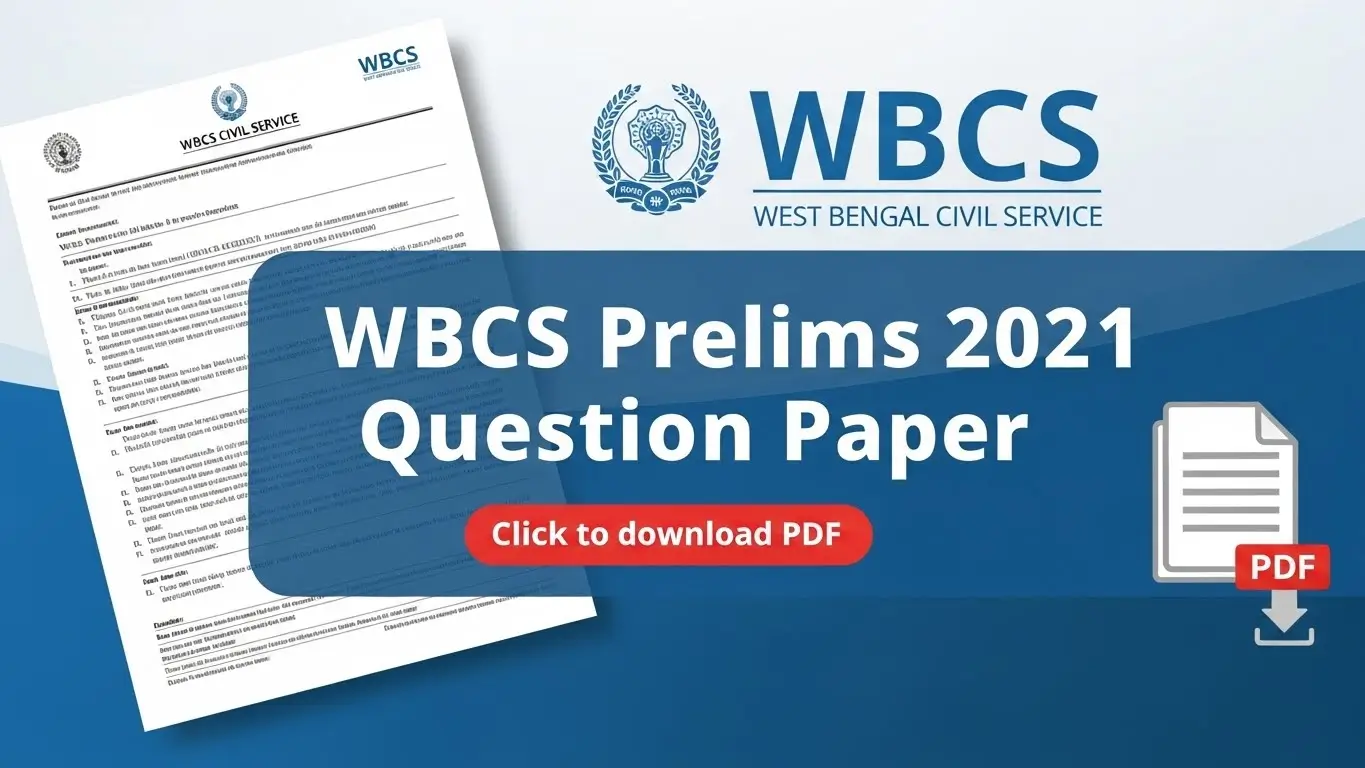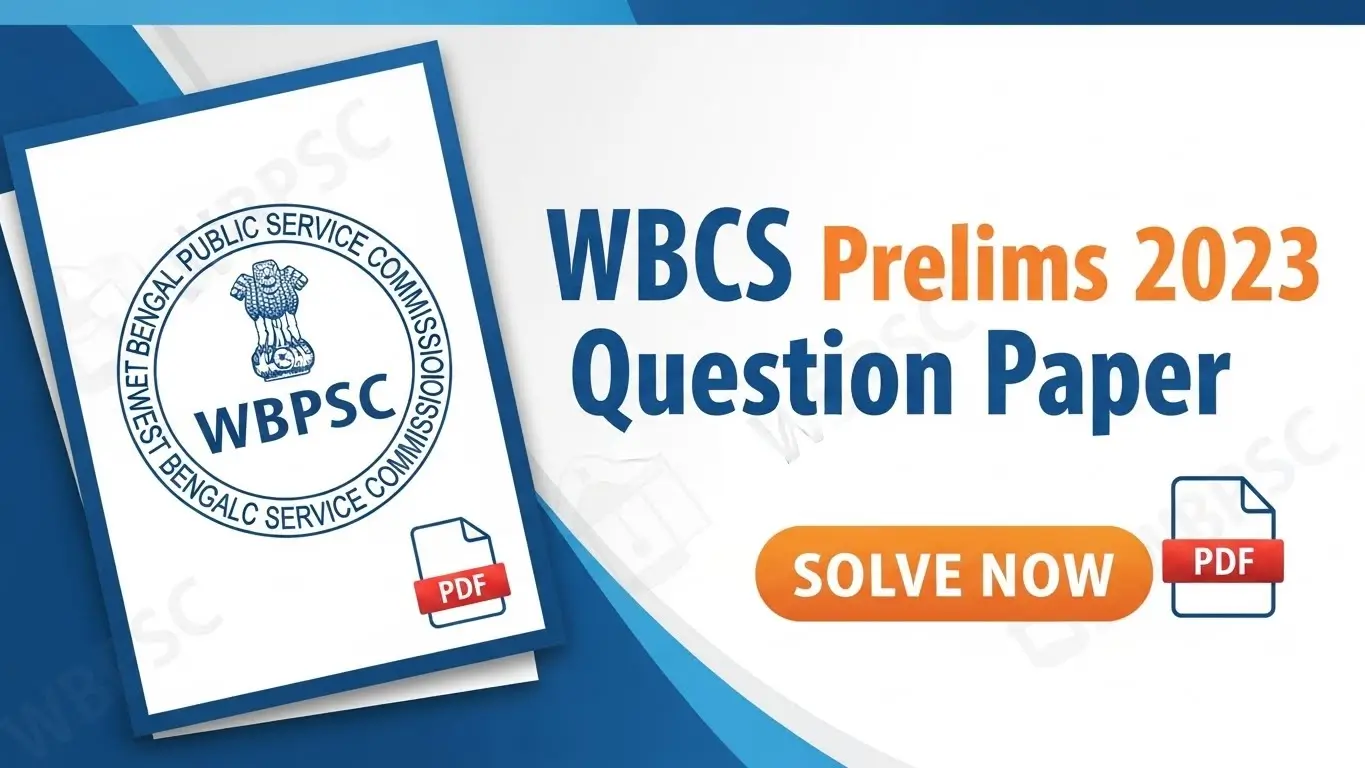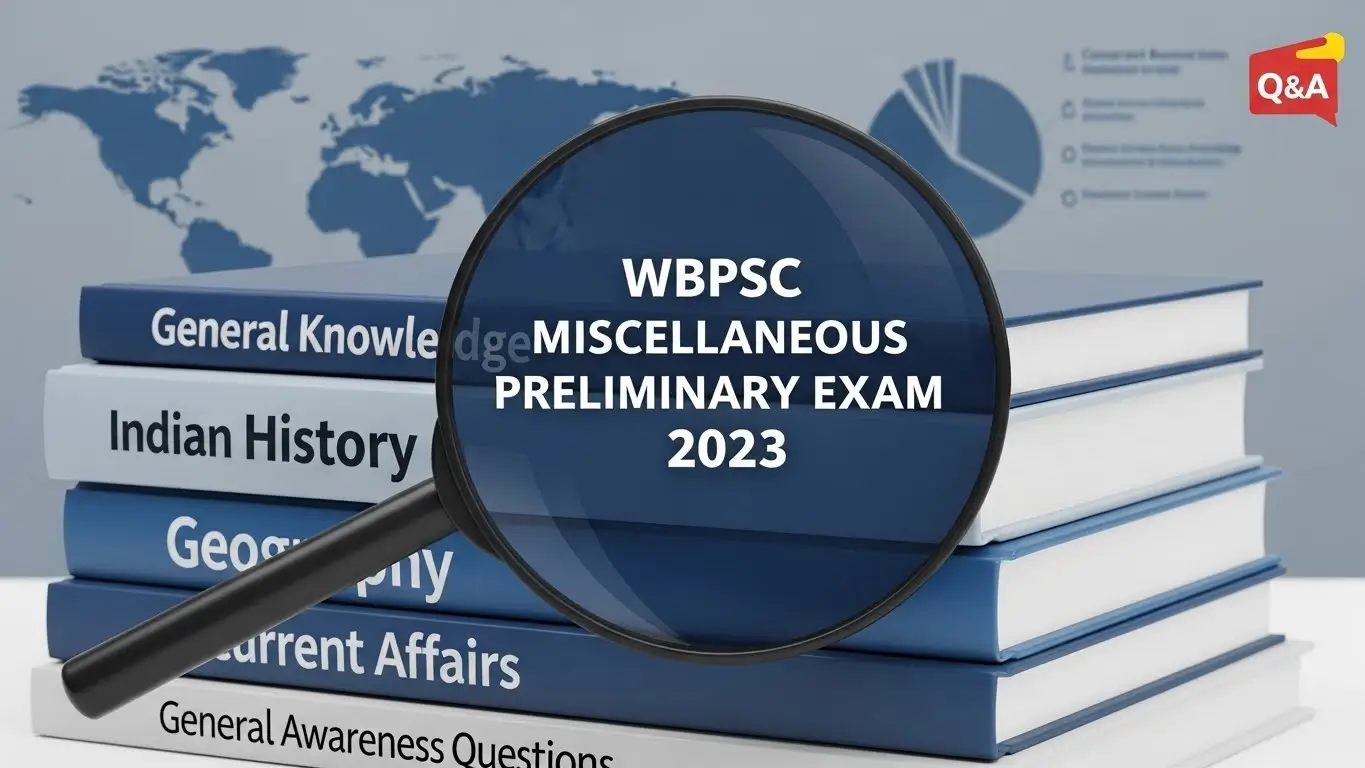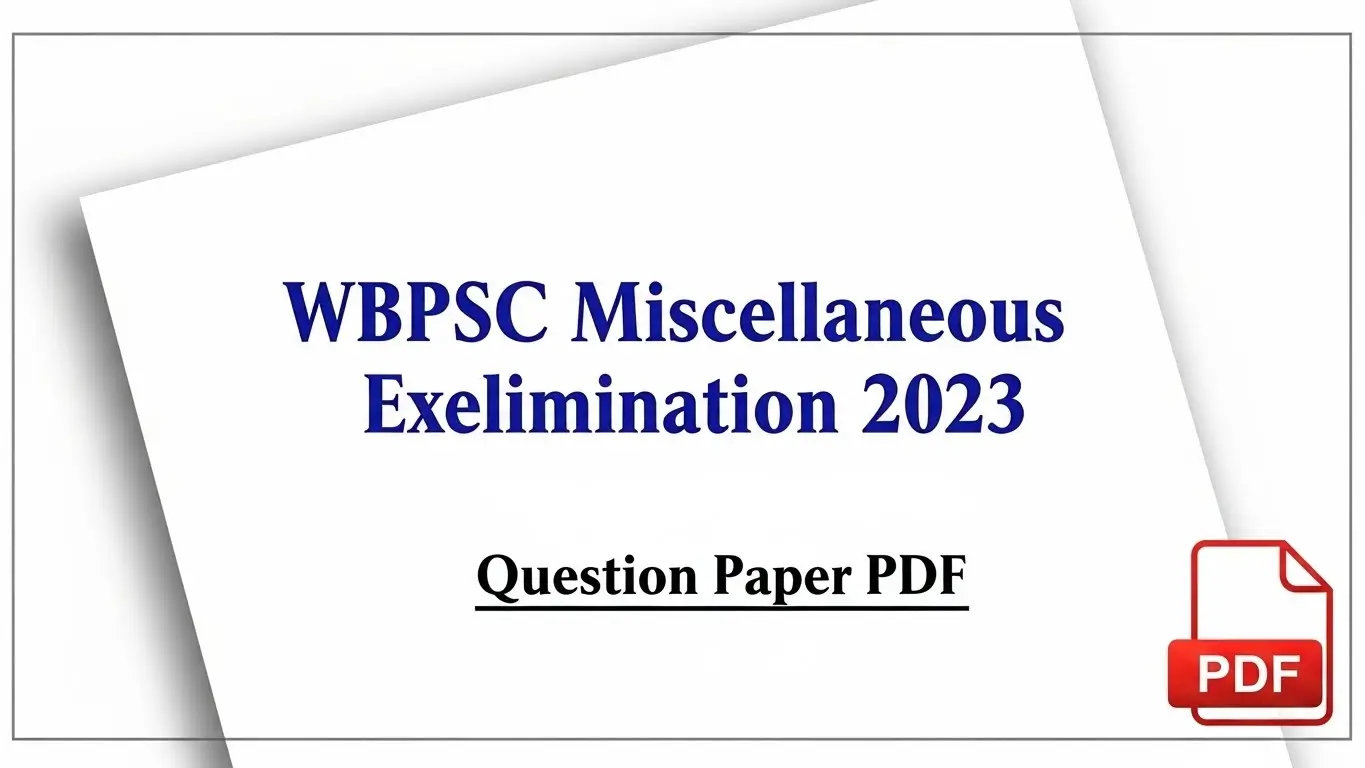নানাঘাট শিলালিপিতে কার কীর্তি বর্ণিত হয়েছে?
(A) Satakarni I
(B) Gautamiputra Satakami
(C) Vashishta Putra Pulamayi
(D) Yajnasri Satakarni
Explanation: The Nanaghat inscription, located in Maharashtra, describes the achievements of Satavahana ruler Yajnasri Satakarni. It highlights donations, sacrifices, and military conquests, providing valuable information about the Satavahana dynasty.
Q32) The historical importance of the second session of the INC held in Calcutta in 1886 was that—
১৮৮৬ সালে কলকাতায় অনুষ্ঠিত কংগ্রেসের দ্বিতীয় অধিবেশনের ঐতিহাসিক গুরুত্ব ছিল—
(A) There was merger between the INC and the National Conference.
(B) It was presided over by Dadabhai Naoroji.
(C) The great scholar Rajendralal Mitra was the President of its local Reception Committee.
(D) All of the above.
Explanation: The 1886 Calcutta Session of the Congress was significant as it merged with the National Conference, was presided over by Dadabhai Naoroji, and had Rajendralal Mitra as Reception Committee President—marking Congress as a national platform.
Q33) The first cotton textile mill, in India was set up in
ভারতে প্রথম কটন টেক্সটাইল মিল কোথায় স্থাপিত হয়েছিল?
(A) Kolkata – Ghusuri
(B) Kolkata – Sinthi more
(C) Nagpur
(D) Thane
Explanation: The first successful cotton textile mill in India was established at Thane, Mumbai in 1854 by Cowasji Nanabhoy Davar. It laid the foundation of India’s modern textile industry.
Q34) Mahatma Gandhi presided over the Annual Session of Congress only once at
মহাত্মা গান্ধী মাত্র একবার কংগ্রেসের বার্ষিক অধিবেশনের সভাপতিত্ব করেন, তা ছিল
(A) Kakinada, 1923
(B) Belgaum, 1924
(C) Kanpur, 1925
(D) Gauhati, 1926
Explanation: Mahatma Gandhi presided over the Indian National Congress only once, at Belgaum in 1924. This was a unique occasion as he usually stayed away from formal leadership roles in Congress sessions.
Q35) Name the Sultan who first organised expeditions to conquer the Deccan.
কোন সুলতান প্রথম ডেকান বিজয়ের জন্য অভিযান সংগঠিত করেন?
(A) Alauddin Khalji
(B) Balban
(C) Firuz-Tughluq
(D) Md. Bin-Tughlaq
Explanation: Alauddin Khalji was the first Delhi Sultan to organize large-scale expeditions to the Deccan. His generals captured Devagiri, Warangal, and Dwarasamudra, greatly increasing the empire’s wealth through tribute.
Q36) Name the Sultan of Delhi who first introduced the north-west frontier policy.
দিল্লির কোন সুলতান প্রথম উত্তর-পশ্চিম সীমান্ত নীতি চালু করেন?
(A) Iltutmish
(B) Balban
(C) Raziya
(D) Alauddin Khalji
Explanation: Sultan Balban introduced the North-West Frontier Policy to strengthen frontier defenses against Mongol invasions. He built forts, stationed garrisons, and emphasized strong military presence in Punjab and Multan.
Q37) Under the rule of which emperor Nalanda University was founded?
কোন সম্রাটের শাসনকালে নালন্দা বিশ্ববিদ্যালয় প্রতিষ্ঠিত হয়েছিল?
(A) Samudragupta
(B) Chandragupta II
(C) Skandagupta
(D) Kumaragupta I
Explanation: Nalanda University, one of the world’s earliest universities, was founded during the reign of Kumaragupta I (5th century CE) of the Gupta dynasty. It became a global center for Buddhist and Vedic studies.
Q38) Who was instrumental in founding the National Planning Committee (the forerunner of the Planning Commission) in 1938?
শিল্পায়নের ভিত্তিতে অর্থনৈতিক উন্নয়নের পরিকল্পনা তৈরির জন্য ১৯৩৮ সালে জাতীয় পরিকল্পনা কমিটি স্থাপনে কে গুরুত্বপূর্ণ ভূমিকা পালন করেন?
(A) Subhas Chandra Bose
(B) Jawaharlal Nehru
(C) Mahatma Gandhi
(D) Maulana Abul Kalam Azad
Explanation: Subhas Chandra Bose set up the National Planning Committee in 1938 under the chairmanship of Jawaharlal Nehru. It was the first attempt to draft an economic plan based on industrialization.
Q39) Which state among the ‘Sixteen Mahajanapadas’ was successful ultimately in founding an empire?
ষোলো মহাজনপদের মধ্যে কোন রাজ্য শেষ পর্যন্ত সাম্রাজ্য প্রতিষ্ঠায় সফল হয়েছিল?
(A) Koshala
(B) Kashi
(C) Magadha
(D) Panchala
Explanation: Among the sixteen Mahajanapadas, Magadha rose to prominence due to its fertile land, iron resources, and strong rulers like Bimbisara and Ajatashatru. It became the foundation of great empires like the Mauryas and Nandas.
Q40) Who was the first historical emperor of India?
ভারতের প্রথম ঐতিহাসিক সম্রাট কে ছিলেন?
(A) Dhanananda
(B) Chandragupta Mourya
(C) Bimbisara
(D) Bindusara
Explanation: Chandragupta Maurya, founder of the Mauryan Empire (322 BCE), is regarded as the first historical emperor of India. With Chanakya’s guidance, he defeated the Nandas and united most of the subcontinent.







